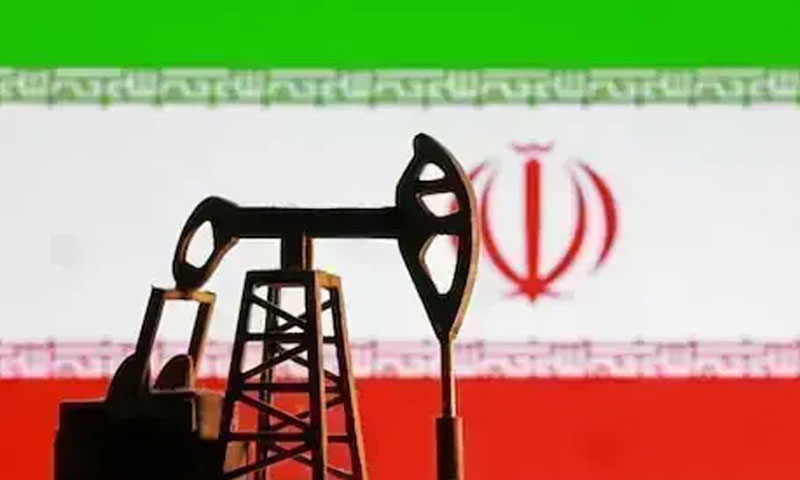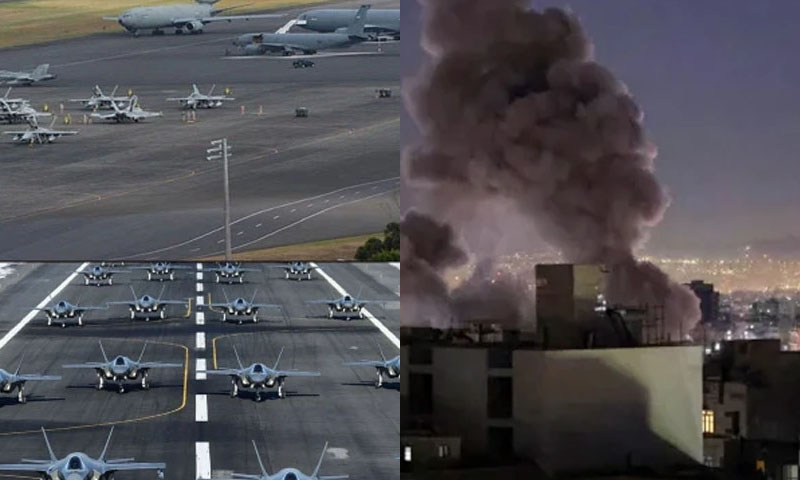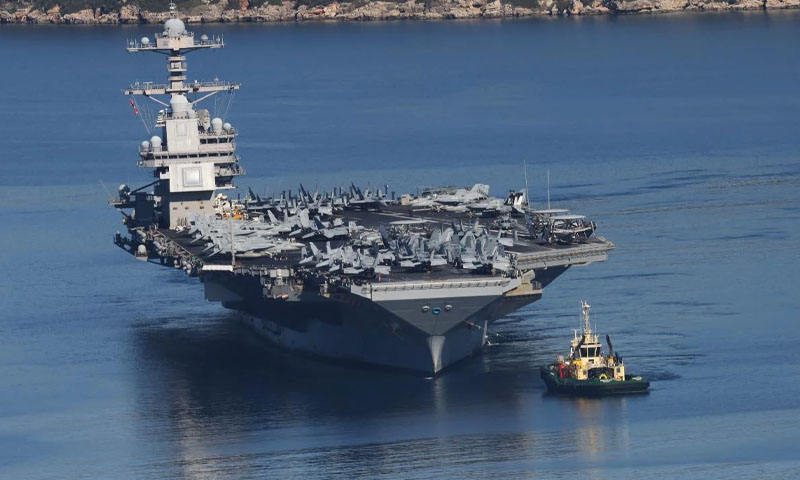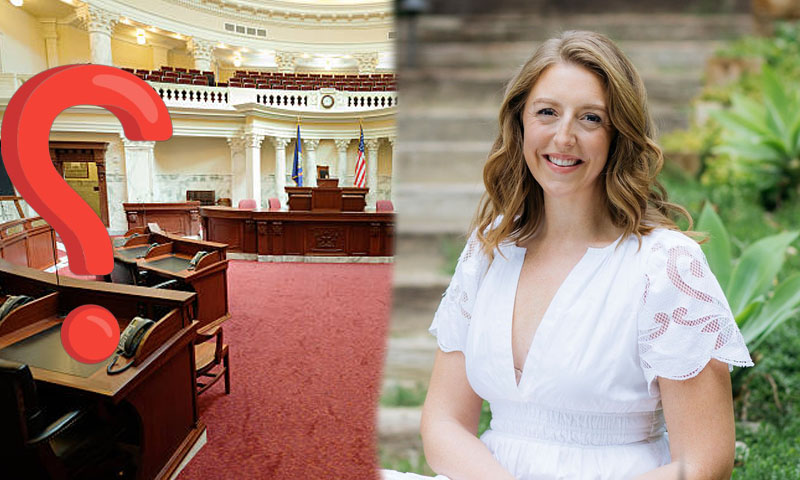- Web
- Yesterday
Macron calls for world order ‘based on law’
-

- Web Desk
- May 26, 2025
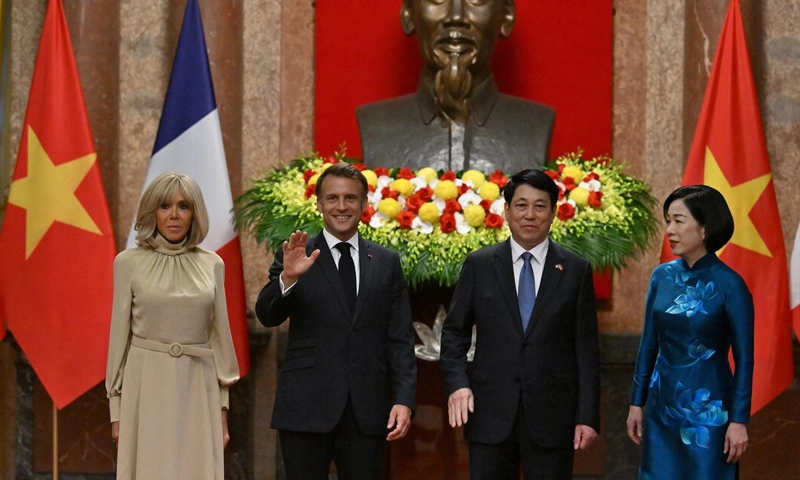
HANOI: French President Emmanuel Macron called Monday for the preservation of a world order “based on law”, as he started a tour of Southeast Asia, a region caught up in the confrontation between the United States and China.
Macron said a rules-based order was necessary at “a time of both great imbalance and a return to power-driven rhetoric and intimidation”, as he met his Vietnamese counterpart Luong Cuong in Hanoi.
Read more: Macron eyes deals in Southeast Asia amid US-China rivalry
Washington is threatening to impose punishing trade levies on Vietnam, which has the third-largest trade surplus with the US after China and Mexico.
Macron also had a message for Donald Trump, saying he hoped the US president’s anger at Moscow “translates into action” after a weekend of deadly Russian attacks on Ukraine that came despite a push for a truce.
Macron told reporters he believes “President Trump realises that when President Putin said on the phone he was ready for peace, or told his envoys he was ready for peace, he lied”.
He added that he was “confident” trade talks between the European Union and United States would succeed, hoping that tariffs would be dialled back to “as low as possible”.
RELIABLE ALTERNATIVE
Macron sought to present France as a reliable alternative for Vietnam, which is caught between Washington’s tariff threats on one hand and Beijing, an important trade partner with which it is also embroiled in territorial disputes in the South China Sea, on the other.
“With France, you have a familiar, safe, and reliable friend,” Macron said during a meeting with To Lam, the secretary general of the Communist Party and Vietnam’s top leader.
“In the period we are living in, this alone has great value,” he added.
Seeking access to Vietnam’s surging economy, Macron said nearly nine billion euros worth of contracts had been signed during his visit.
Budget airline Vietjet announced an order for 20 widebody Airbus A330-900 planes, doubling its purchases of the model from the aviation giant.
An agreement was also signed on nuclear power, which Hanoi is keen to develop as it seeks to meet soaring energy demands while reducing carbon emissions.
RIGHTS CALL
Macron arrived in Hanoi late Sunday, the first stop of a six-day trip that will include Indonesia and Singapore. He is scheduled to meet Vietnamese students on Tuesday morning, before flying to Jakarta in the afternoon.
After paying tribute Monday at a Hanoi war memorial to those who fought against French colonial occupation, Macron had lunch with Lam at the capital’s Temple of Literature, where the two watched a traditional music and dance performance.
Lam is considered the most powerful leader in Vietnam, a one-party state which tolerates no dissent and moves quickly to suppress any criticism.
Ahead of Macron’s first official visit to the country, Human Rights Watch pressed him to voice concerns about “the Vietnamese government’s worsening rights record”.
Vietnam has more than 170 political prisoners who have been charged and convicted under “draconian laws” that criminalise free expression and peaceful activism for human rights and democracy, HRW said.
A public appeal would be out of character for the French president, who regularly says he prefers to raise sensitive issues behind closed doors.
VIETNAM ON ‘FRONT LINE’
Hanoi shares Washington’s concerns about Beijing’s increasing assertiveness in the contested South China Sea, but it has close economic ties with its giant neighbour.
“Vietnam is really on the front line of all the tensions that are growing in the South China Sea,” a senior French diplomatic official told AFP.
Vietnam has also been threatened with a hefty 46 percent tariff by US President Donald Trump as part of his global trade blitz.
Macron’s “Indo-Pacific strategy” – which offers countries in the region a “third way” – has gained new relevance due to Trump’s trade war, according to the aide.
He said the president was “defending the idea of international trade rules, we don’t want a jungle where the law of the strongest prevails”.
Vietnam has been careful to follow its own balancing act between China and the United States.
It has adopted a “bamboo diplomacy” approach of seeking strength through flexibility, or looking to stay on good terms with the world’s major powers.

